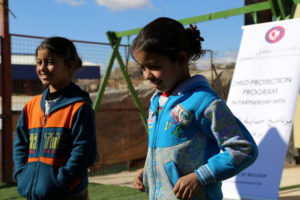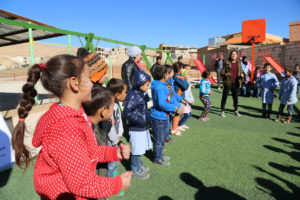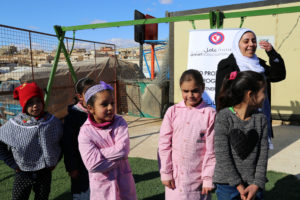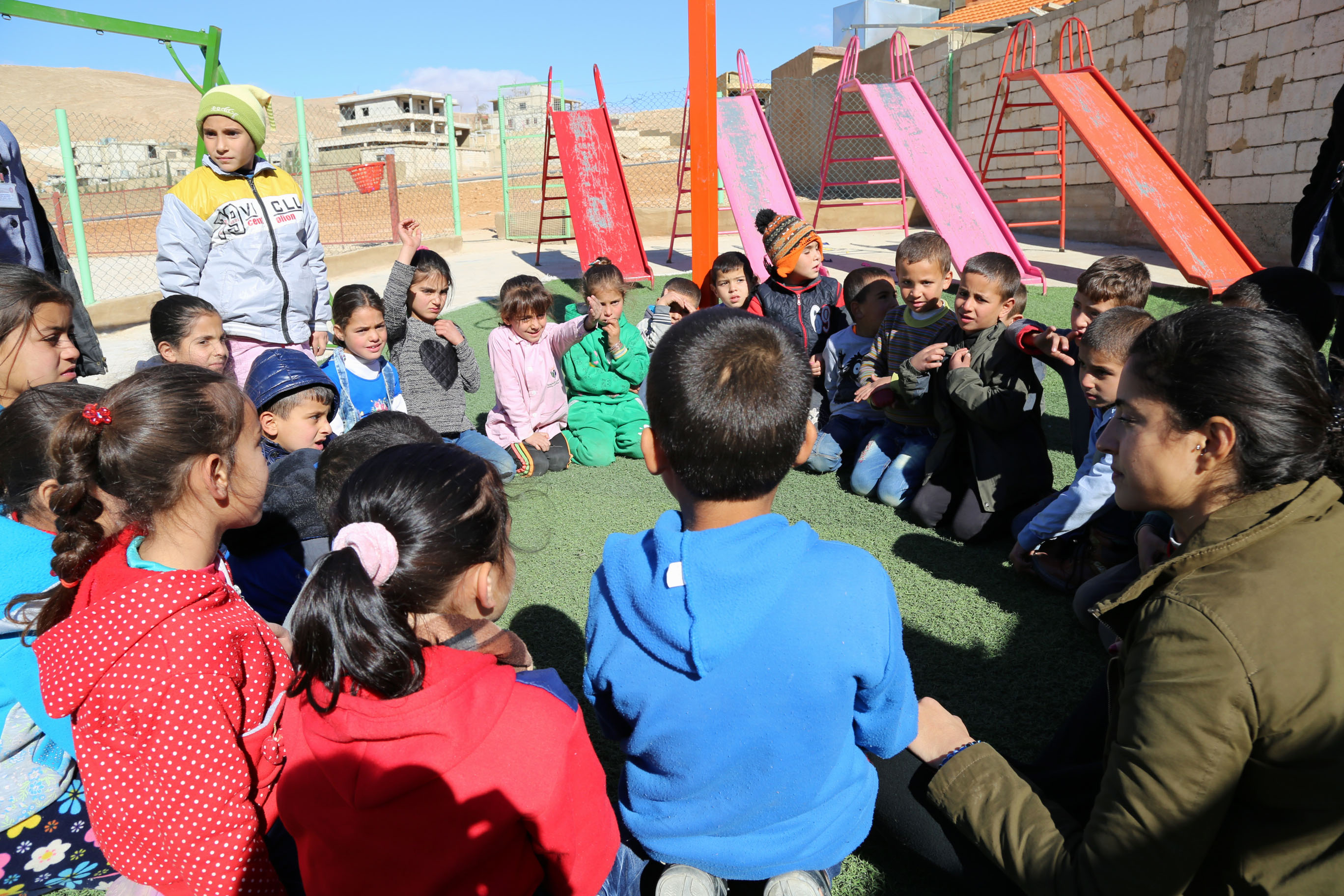In the regions of Mount Lebanon and Bekaa, Amel Association International provides psychosocial support to children and young people in its centers and in informal settlements, in order to create a healthy environment enabling their development. Moreover, Amel is implementing a project that encourages the engagement of children, families, and communities affected by the Syrian crisis. Its first objective is to prevent and respond to abuse and violations faced by girls, boys, women, and men.
While education is the key to enable the personal development of children, it is also important to ensure the psychosocial well-being of children. In that way, Amel, with several partners, is implementing a project to strengthen the engagement of children, families, and communities affected by the Syrian crisis. Its first objective: to prevent and respond to abuse and violations faced by girls, boys, women, and men. It is about starting a process of social and behavioral change within communities, and struggling against the practice of early and forced marriage and child labor. Amel staff promote peaceful interactions between children in order for them to adopt more positive and less aggressive behaviors.

Because transportation is expensive and mobility is difficult, Amel staff will go directly to the most remote communities. Therefore, the association aims to facilitate access to its services, and to reach a maximum amount of people among whom we have 35% of vulnerable Lebanese or caring for children with disabilities, and 65% of Syrian refugees living in informal settlements.
Fun and educational activities
Many psychosocial support activities are organized in order to provide emotional support to children, and to help them become aware of their safety and rights. Through games, acting workshops, and sports activities, they not only learn self-protection techniques, but they also meet new friends, which enhances social cohesion and their personal development.

These activities allow the identification of children with special needs. The children are integrated despite the mental or physical disabilities they may have. If necessary, children are redirected to specialized NGOs by Amel.
Finally, in order to achieve structural change, it is essential to integrate parents as well as the entire community, to make them aware of the risks that their children face when they are forced to work or get married to the detriment of their schooling. Parenting skills activities are organized to improve communication between each other and their children, to apply positive methods of education, and to manage their stress.
In addition, Amel has set up parent and child committees from informal settlements and centers so they can meet on a regular basis to express themselves safely, highlight problems, and find solutions.

The first tests and evaluations of the project show that psychosocial support offers children and parents the opportunity to strengthen and empower themselves, thus contributing to their psychological health, social well-being, and personal development.





 Creative Commons Attribution 4.0 International license
Creative Commons Attribution 4.0 International license